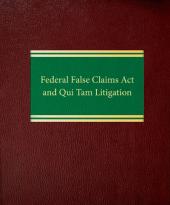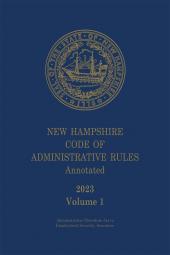Federal False Claims Act and Qui Tam Litigation
Select a format
 International Order Inquiry
International Order Inquiry
Select subscription type
Terms & conditions
Subscribers receive the product(s) listed on the Order Form and any Updates made available during the annual subscription period. Shipping and handling fees are not included in the annual price.
Subscribers are advised of the number of Updates that were made to the particular publication the prior year. The number of Updates may vary due to developments in the law and other publishing issues, but subscribers may use this as a rough estimate of future shipments. Subscribers may call Customer Support at 800-833-9844 for additional information.
Subscribers may cancel this subscription by: calling Customer Support at 800-833-9844; emailing customer.support@lexisnexis.com; or returning the invoice marked "CANCEL".
If subscribers cancel within 30 days after the product is ordered or received and return the product at their expense, then they will receive a full credit of the price for the annual subscription.
If subscribers cancel between 31 and 60 days after the invoice date and return the product at their expense, then they will receive a 5/6th credit of the price for the annual subscription. No credit will be given for cancellations more than 60 days after the invoice date. To receive any credit, subscriber must return all product(s) shipped during the year at their expense within the applicable cancellation period listed above.
The total price includes the product(s) listed in the Order Form and any Updates for a limited period (minimum period of 30 days) after the order is placed ("Order Window"). Shipping and handling fees are not included in the grand total price.
All shipments may be returned, at subscribers' expense, for full credit of the Price within 30 days of receipt.
Shipments may not be returned, and no credits will be issued, more than 30 days after receipt.
After the Order Window, subscribers will receive notice of Updates along with the then-current grand total price and order process as Updates become available. Subscribers will only be shipped those Updates they specifically request.
Product description
Federal False Claims Act and Qui Tam Litigation is a unique guide to this vital area. Unlike many treatises that focus solely on the plaintiff whistleblower or "relator," this book provides detailed, comprehensive coverage of the interests of all the participants in qui tam cases—the relator, the defendant corporation, the federal and state governments, and the courts. It also provides state-of-the-art analysis of the latest cases and whistleblower statutes, federal, state and municipal.
Topics include: evaluating the merits of a potential action; determining whether the relator would be barred or restricted from any recovery for retaliation; for plaintiffs, locating a favorable judiciary and an aggressive prosecutor's office; for defendants, anticipating, preventing and responding to litigation; determining whether a claim is material; theories of liability under the FCA; government indifference or concurrence with erroneous certification; assessing an appropriate relator's share of any recovery; parallel criminal actions; and more.
Each chapter concludes with detailed analysis of the strengths and weaknesses of significant cases for the relator, the defense, the government and the judiciary. This is a book that will help all parties understand and master the challenges of this important and growing field.
eBooks, CDs, downloadable content, and software purchases are noncancelable, nonrefundable and nonreturnable. Click here for more information about LexisNexis eBooks. The eBook versions of this title may feature links to Lexis+® for further legal research options. A valid subscription to Lexis+® is required to access this content.
Table of contents
CHAPTER 1
Scope and Introduction
CHAPTER 2
History of the False Claims Act
CHAPTER 3
What Constitutes a Claim
CHAPTER 4
Substantive Violations
CHAPTER 5
Healthcare Fraud Cases Under the FCA
CHAPTER 6
Other Kinds of Fraud Cases Under the FCA
CHAPTER 7
Protection from Retaliation
CHAPTER 8
Jurisdiction, Venue, and Other Threshold Issues
CHAPTER 9
Pretrial Procedures, Discovery, and Appeals
CHAPTER 10
Pitfalls of Filing Suit
CHAPTER 11
FCA Damages and Penalties
CHAPTER 12
Defending and Preventing Suit
CHAPTER 13
Settlement, Attorney's Fees, Relator Share, and Dismissal
CHAPTER 14
State and Municipal False Claims Acts and Other Whistleblower Statutes
CHAPTER 15
Non-FCA Federal Whistleblower Programs
Appendix
Table of Abbreviations
Index
 Lexis Nexis
Lexis Nexis 


